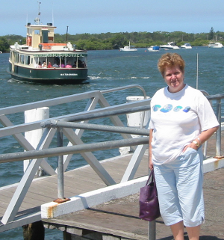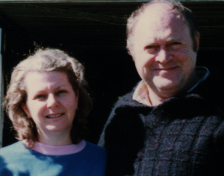Home














INTRODUCTION to Type1-Diabetic-Journey
During my life with Type 1 Diabetes I have spent most of my time going into, experiencing, or recovering from hypoglycaemia, which is severe low blood glucose. These episodes were almost always followed by fatigue and headaches and I often behaved very differently to my normal behaviour and became unruly and demanding, and with associated confusion I often was very short tempered with people. I experienced hearing loss during these events and often misunderstood what people were saying to me. Some of my kinder friends would occasionally tell me, and offer some assistance.
The past 19 years with a disease which has changed my whole persona from being happy, optimistic and full of life, to a person who now has to concentrate on a strict daily medical and dietary routine, with even stronger motivation than I had before, has forced me to adjust to this change just to maintain half of my former good health. On some days, my ability to cope drops even further and leaves me unable to care for myself, which is how I require a Full-Time Carer. I have been unable to return to my work since age 46 years, and loss of income has created numerous social difficulties magnified by the loss of communication with friends who are busily working. Instead of my life revolving around paid employment, it is a continual journey of creating successful measures to stay alive. I have outlined many of these situations in my Pages.
Anyone can become a Type 1 Diabetic at any age, not just young people, as is commonly thought. I discovered this truth from a wide range of reading material, some of which I have collected as a reference library as shown in the section, 'My Health Library'. Genetics, stress and also lifestyle can contribute to this silent illness before diagnosis. I consider myself extremely fortunate for not having developed Diabetes earlier in my life and that I was able to raise my family without juggling this illness, family and work commitments.
I have learnt to restructure my diet from eating high carbohydrate foods, such as white bread, pastas and white potato, to low glycaemic foods that include grilled fish, green and red salads, eggs and other proteins. This approach calls for far less fast-acting insulin and so the subsequent hypoglycaemic events have been reduced. My four month blood profile (HbAlc) has dropped dramatically from a dangerous 11.2 blood glucose level (BGL) to a moderate 7.6 BGL, and I plan to lower it even further.
Having read about people who have been able to control their fluctuating high and low blood glucose levels, I noticed how many of the articles included a statement about learning to 'control the disease, and not letting the disease control you'. I always found this a fascinating statement given my situation with life threatening hypoglycaemic events over the years, and the near coma events with hyperglycaemia (very high blood glucose levels). I wondered how anyone could say Diabetes could be controlled when, in my case, it made my whole life come to a grinding halt, where I was continually under medical care and often hospitalised during the first year of diagnosis alone. Work was impossible.
Controlling the severity of this situation was left entirely to the medical profession, who at that stage made no mention of the importance of lowering carbohydrates to lower glucose in the body. They did however give me a very strict diet to follow which eliminated all sugars, most fats, salt and all take-away foods. Very quickly I switched to cooking my own boiled meats and giving up roasts because of their high fat content. By boiling the meat, I could drain off the fatty water. Regular salads and serves of grilled or steamed fish appeared on our menu, even in winter-time, and I lowered my fruit intake to only include low carbohydrates such as green apples and pears, stone fruits, lemons and kiwifruit. 'The Nutritional Value of Australian Foods' by the National Food Authority, ( see the Web Link in Further Reading ), is a scientific reference for improving the diet of individual Australians and anyone in the community concerned about their food intake. I thoroughly recommend this site to you.
I found that some fruits were extremely high in carbohydrate and sugars, for example watermelon, sweet oranges, strawberries and bananas. I have eliminated all of these in preference for less sugar in green apples and pears, lemons and stone fruits and I even eliminate these in times of stress, which I have found automatically raises my blood glucose levels.
I am certain that having less carbohydrate has brought about a remarkable change in my well-being and I feel like a different person. My improved positive thought has made me be able to combat the mean and abject comments that I have endured, see my article, 'Discriminating Medical One-liners I have received' in Medical Experiences from people who thought I could be doing more for myself or thought they were offering wise advice.. This was just the challenge that I needed to start writing my pages to show my firm effort at gaining at least some control over Type 1 Diabetes. A beloved close relative thought it would be an idea for me to start documenting my details, and at first the idea was overwhelming given the subject matter and amount of documentation I had already kept. So this is where I continue my journey....
Ailsa E.Cooper
Next page: My Health Library




